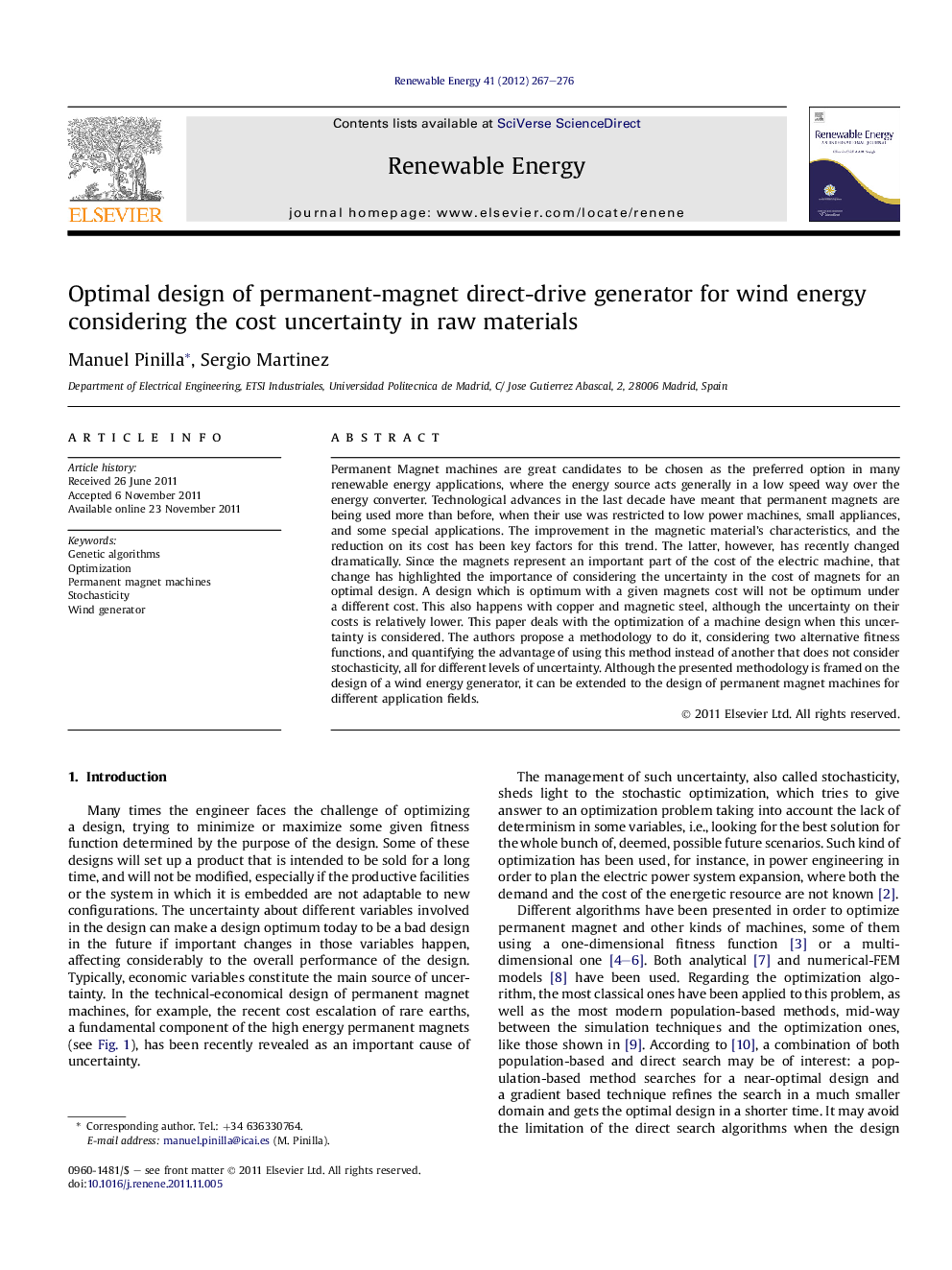| Article ID | Journal | Published Year | Pages | File Type |
|---|---|---|---|---|
| 301121 | Renewable Energy | 2012 | 10 Pages |
Permanent Magnet machines are great candidates to be chosen as the preferred option in many renewable energy applications, where the energy source acts generally in a low speed way over the energy converter. Technological advances in the last decade have meant that permanent magnets are being used more than before, when their use was restricted to low power machines, small appliances, and some special applications. The improvement in the magnetic material’s characteristics, and the reduction on its cost has been key factors for this trend. The latter, however, has recently changed dramatically. Since the magnets represent an important part of the cost of the electric machine, that change has highlighted the importance of considering the uncertainty in the cost of magnets for an optimal design. A design which is optimum with a given magnets cost will not be optimum under a different cost. This also happens with copper and magnetic steel, although the uncertainty on their costs is relatively lower. This paper deals with the optimization of a machine design when this uncertainty is considered. The authors propose a methodology to do it, considering two alternative fitness functions, and quantifying the advantage of using this method instead of another that does not consider stochasticity, all for different levels of uncertainty. Although the presented methodology is framed on the design of a wind energy generator, it can be extended to the design of permanent magnet machines for different application fields.
► Permanent magnet machines are an important kind of generators in wind power. ► The costs of materials for these machines are becoming more and more uncertain. ► This uncertainty has then become a key factor in the design. ► A methodology for optimal design under uncertainty in costs is presented.
